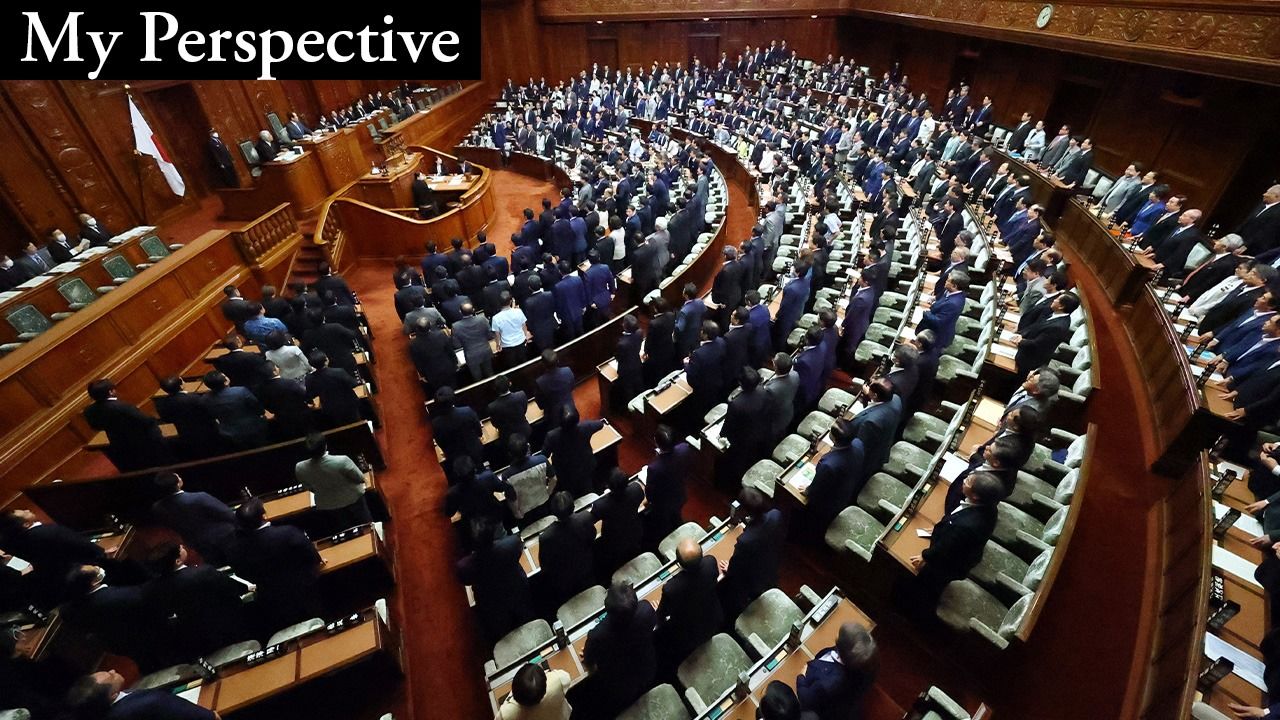
Where Does the Buck Stop? Accountability in Japanese Politics
Politics Society- English
- 日本語
- 简体字
- 繁體字
- Français
- Español
- العربية
- Русский
Ephemeral Accountability
The latest political scandal to rock the Japanese public has been the habitual collection and distribution of unreported funds by the factions in the ruling Liberal Democratic Party. What has struck many as strange this time around, though, is the way that the country’s political leaders—from ruling and opposition parties alike—have hammered on the concept of accountability in connection with the scandal.
Why should this seem strange? To begin with, the creation of these unreported slush funds is an illegal action, contravening the Political Funds Control Act. Even if we accept the argument that legal responsibility for this crime lies not with the Diet members themselves, but rather with their staff members who handled the fundraising events, the action as a whole clearly goes against both the letter and the spirit of the law.
When we confront the news of this crime with demands to know why it was committed, or how the funds illicitly gained have been used, it is as though we are asking a burglar himself to tell us all about what he has done. The pressing issue here is not the accountability of the criminals, but how they will be punished—the sincerity with which they reflect on their crimes, and their words and deeds of atonement.
We have at last seen some of the parties involved punished by the LDP for their roles in the scandal, but we have seen very little light shed on the process by which this slush-fund process was established, or the people responsible for crafting it.
The Individual or the Collective?
Today, the time has come for Japan to take a closer look at the processes through which its political decisions are made. In this connection, an illuminating exchange took place in April 1975 between Miyazawa Kiichi, then Japan’s minister for foreign affairs, and US Secretary of State Henry Kissinger.
“I must tell you the Japanese decision-making process absolutely fascinates me,” said Kissinger, going on to detail a key difference between the policy-setting processes in Japan and the United States. Japan does not feature individuals who make bold decisions on their own and take responsibility for them; “in Japan you have to make decisions from the ground up, in your normal way.”
In response to this, Miyazawa noted that political decisions, particularly important ones, do not get made by individuals in Japan. “It is quite possible to develop new and even audacious decisions in Japan, but they do not come out of the leadership without careful groundwork.”
Indeed, decision-making in Japan emphasizes the laying of groundwork, careful consultation, and broad participation by various actors. In perhaps the most important political decision made in the postwar era, Prime Minister Tanaka Kakuei’s 1972 move to normalize diplomatic relations with the People’s Republic of China, Tanaka brought an opposition leader on board, enlisting Kōmeitō chair Takeiri Yoshikatsu to play a key role, traveling to Beijing in advance of the normalization talks. Within the ruling LDP, too, pro-Taiwan lawmakers were tapped to go to Taipei and others friendly to the PRC to go to Beijing, where they helped to lay the groundwork for this momentous decision. Once their work was completed, Tanaka himself could go to China in September 1972 to sign the joint communiqué.
Watching for the Pitfalls of Consensus
This is the Japanese way: a focus on collective consensus-building. Its downsides are the length of time it can take to get things done, and the lack of clarity surrounding who is responsible for a given decision. On the other hand, though, it does successfully draw a line between the individual actors involved and the positions they happen to occupy. The responsibility for decisions does not rest solely on the shoulders of individuals in offices like prime minister, cabinet minister, or party president, and the authority of those positions—the title and status of a minister, or the prime minister—is as a result less likely to be damaged by the fallout from those decisions. In nations where greater emphasis is placed on individuals’ responsibility for political decisions, by comparison, the authority of key positions like president or premier may be undermined when a decision goes wrong.
The Japanese-style consensus-building approach also places great weight on the explanations that are offered. The process of explaining a decision is a way to indirectly engage other actors in the decision-making process, in a sense helping to share responsibility for the final outcome indirectly with a greater number of parties.
It must be admitted, though, that while this sort of approach to crafting consensus may be ideal when forward-looking policy is on the agenda, in cases like the current slush-fund scandal—when the decisions concern the “darker side” of political matters—it can lead to the concealment of things that need to be brought into the open. It is of course a fine thing to amend the Political Funds Control Act, but we must beware of the possibility that individual politicians, hiding in the shadow of the collective efforts to shape the new law, will retain their lax ethical stances and leave loopholes for them to exploit.
This is the first in “My Perspective,” a new series of opinion pieces penned by a rotating team of three writers. We hope to publish their thoughts on domestic and international affairs, culture, history, and more on a regular basis.—Ed.
(Originally written in Japanese. Banner photo: Lawmakers pass a bill to amend the Political Funds Control Act at the House of Representatives on June 6, 2024. © Jiji.)
